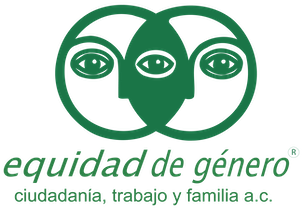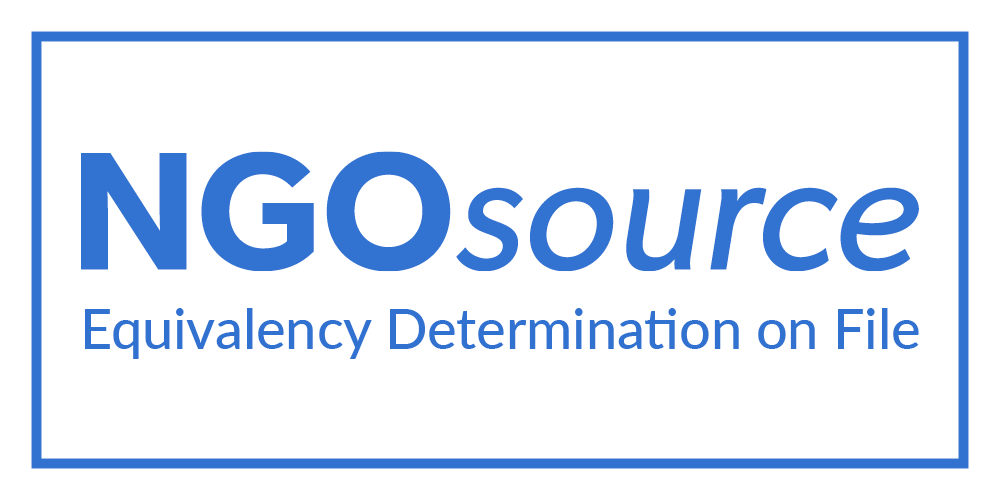Feminist Solidarity for a Collective Response to COVID-19

This publication was originally posted on Medium
By Bridget Burns and Emilia Reyes
Today, we come together to launch www.feministcovidresponse.com, a volunteer online data repository of information on feminist principles and actions, as well as policy responses to the COVID crisis.
We find ourselves in a crisis among crises. A global pandemic that does not serve as a great equalizer, but as a great exacerbator, similarly to how climate change magnifies, amplifies, and compounds inequalities. It’s a moment that is challenging us to create urgent and systemic change, and that is showing the deep fault lines in how our societies are organized. It’s a moment of reckoning, of revaluation of whose labor is essential, of how to create resilient communities able to provide social protection and care.
Working at the intersections of multiple forms of crisis is not a new task for feminist advocates. As the world’s consciousness awoke to the devastating scale of the COVID-19 pandemic, it took only a matter of days for global feminist networks to come together to share reflections on the crisis and how we could build together towards collective action.
Many of these networks had spent the months of January and February strategizing together to influence the 64th session of the Commission on the Status of Women (CSW) due to take place in New York in early March and to undertake a critical review of the Beijing Platform for Action — signed by Governments in 1995. The CSW was canceled at the end of February, the first major UN conference canceled due to coronavirus. For these groups of feminists, in addition to local and national concerns, a void in multilateral efforts to address the crisis posed a clear risk for the effectiveness of the responses. Bearing in mind the need to hear about different realities on the ground as well as to share personal concerns after building meaningful friendships and alliances through many years of joint activism, a collective response was called for.
In our first call at the end of March, the agenda was quite simple: How are you doing? What are you feeling and experiencing? What do we need to respond to this crisis? Both familiar and unfamiliar voices of the activists who joined were immediate balms of comfort for all of us. It was an intense hour and a half call, with a multiplicity of dimensions laid out: we shared concerning reports of local challenges and started to exert analysis of the current situation from different angles. But most of all, we shared our personal assessments and collective fears.
That first call resulted in a number of key reflections that have framed our work in the short term:
- First, that this is a deeply personal and embodied crisis, one being faced by each and every person in their own intersecting ways. It became evident now more than ever we should fully embrace and lift up feminist leadership in promoting self-care, in being kind and compassionate not only to others but to ourselves, in reaching out to each other and finding comfort in feminist solidarity.
- Second, that this is a moment that demands re-valuing and centering care. The world is understanding what feminists have been working on for decades: a full scale re-evaluation of what work is “essential”. With this, comes an understanding of the gendered nature of this crisis and who is at the frontlines. Even more so, comes a concern about those whose work is already informal and precarious, who may not have access to social protection measures even where such measures are in place.
- Next, that this crisis interlinks deeply with migration and migrant justice: the impact of closing borders and implementing punitive and authoritarian measures in the long-term has to be understood in the context of human rights.
- The impact on the realization of Sexual and Reproductive Health and Rights (SRHR) will be devastating. We are already seeing SRHR essential services being deemed “non-essential”, all in the context of a public health emergency and strained health infrastructure.
- Finally, this pandemic requires solutions that are framed in the context of global justice. We wondered what relief looks like from an equity perspective and what are frameworks for developing and least developed countries for a just response to this crisis.
These were the starting points for deciding we wanted to promote collective action. Our first initiative was to develop a set of principles to outline a Feminist Response to COVID-19. We are very proud of launching these principles globally today. They include that, COVID-19 responses:
- Must center the well-being of all people in an intersectional manner;
- Must ensure the health and safety of all, including ensuring sexual and reproductive health and rights;
- Must promote a comprehensive paradigm shift, relying on adequate and equitable financing;
- Must be based on and strengthen democratic values;
- Must promote a just and equitable transition for people and the planet;
- Must be guided by cooperation, multilateralism, and global justice.
Cross-cutting and inherent to all these principles is the promotion, protection and fulfillment of human rights and gender equality.
In addition, as part of our collective reflections we noted that 1) there was a lot of impressive feminist work and analysis already being published in response to COVID-19, 2) there were policy and community responses, both progressive and regressive, that had to be tracked across countries and, 3) that there was a need to support activists with tools in feminist digital organizing.
On parts 1 & 2, the collective embarked on building out a voluntary database to serve as an online repository of the work of feminist activists in response to the COVID crisis. The project became an immense and powerful locus to concentrate the collective effort and promises to be a source for many future actions. The site has four key sections:
- The Principles for Response, as outlined above.
- Response Tracker. This marks policies or laws, temporary measures, or observed responses by country and by theme (for example, SRHR or education).
- Online Dialogues. This is a repository of online dialogues and webinars that have been held discussing the intersections of gender, feminism, care, women’s rights and COVID-19.
- Resources. This section contains a collection of feminist statements and analysis, mutual aid resources and organizing tools.
The site is dynamic, with new data and features being added weekly, and fueled currently by a team of over 25 volunteer researchers from around the world. In the coming weeks, a public facing form will allow for individuals to upload information and analysis themselves that has been omitted.
On digital organizing, while we know there are a great many tools and platforms available to host virtual forums and conferences, collectively write and brainstorm digital media, reach broad audiences online, and more, there are also a variety of challenges to accessing these tools. The digital divide, as well as lack of information about how to use various platforms that exist, often limit feminists’ (and everyone’s) chances to participate in virtual organizing. To respond to this, members of the collective from Women’s Environment and Development Organization (WEDO) and Women Engage for a Common Future (WECF) planned a series of three teach-ins for organizing virtual meetings, centered around three kinds of skills to grow together, which can be accessed here. The series of teach-ins were a great success, with feminists all around the world exploring new possibilities and sharing technical expertise of tools and best practices on how to navigate current risks and challenges for activists in the digital era.
What do some of these resources look like?
We have seen collective feminist responses in relation to:
- Feminist funding. “A group of philanthropic funders, rooted in feminist funding principles including flexibility and self-determination, are leading the way in providing flexible for their grantees during the COVID-19 pandemic.” Read here.
- Calls to Action. In early April, thousands of organizations & individuals signed on to the Feminist Alliance for Rights Call for a Feminist COVID-19 Policy, “to demand States to adopt a feminist policy to address the extraordinary challenges posed by the COVID-19 pandemic in a manner that is consistent with human rights standards and principles.”
- Resourcing. Multiple feminist networks moved quickly to engage in mutual aid. OutRight Action International has launched the COVID-19 LGBTIQ Emergency Fund — to respond to the urgent needs of LGBTIQ people and communities around the world, particularly in the global South. The Urgent Action Fund has launched a COVID Crisis Fund for Feminist Activists to help deploy resources to activists on the frontlines of the COVID-19 outbreak. And beyond traditional feminist funders, collectives such as Women2030 and the Women’s Major Group have been reorienting programming and support to urgent responses and building resilience to the crisis.
- Localized Responses. FEMNET, the African Women’s Development and Communications Network launched a campaign called #Dignified Response and are building out a platform for African stories of response and impacts of the pandemic.
- Analysis. One of the key inputs many feminists and organizations have been making is in providing analysis of the crisis, from critical gendered and human rights perspectives, aiming to ensure that we both take into account the vast inequalities in the impacts of this crisis and center feminist solutions and care in building a just recovery.
What’s Next?
Global solidarity is the starting point. To map out possible scenarios, to react in an effective way, to shift them within our capacities, to envision the just and equitable post-pandemic future we want, and to promote collective action to achieve it — these are our drivers. Our means are varied.
Sharing, tracking and building out collective action from all of this work is part of what our collective reflections have aimed to do: first putting in place the infrastructure and methodologies to mark this moment, and now building a collective response. We expect to be able to promote more articulated work towards the urgent challenges at the global level with this pandemic, such as:
- Supporting specific campaigns and working to cancel debt globally — an issue that feminists have long known directly impacts the available fiscal space for countries to enact policies for the benefit of gender equality and environmental integrity.
- Fighting for redistributive justice by means of promoting progressive taxation, as well as the eradication of corporate tax abuse and tax avoidance; in a larger scale, to denounce the corporate capture of the response at all levels.
- Correspondingly, contributing to a joined up approach to strengthening multilateralism in this moment, via inclusive and transparent processes and a renewed commitment to democratic and inclusive initiatives. This would include defying the business-as-usual approaches to immediate reactions: Intellectual Property Rights and trade clauses are being used by corporations to profit from vaccines, medical treatment, technology, even food systems.
We will be mapping collectively the challenges we will address together, and we have no doubt our voices will contribute to a larger global call for a meaningful paradigm shift instead of a return to an unjust “normal.”
We continue to hold our calls weekly, finding in inspiring voices the strength to keep on promoting change. To be in collective is a political act. Being in community, with allies, partners, friends, is what drives effective and resilient responses to the current crisis. Feminist organizing, principles and solidarity in the face of COVID-19 can be a powerful driver of transformation.
Emilia Reyes is the Program Director of Policies and Budgets for Equality and Sustainable Development, at the Mexican feminist organization Equidad de Genero: Ciudadania, Trabajo y Familia. Activist and expert on gender responsive public policies and budgets and sustainable development, including comprehensive disaster risk management and climate change. At the global level, she is the former Co-Chair of the HLPF Major Groups and other Stakeholders Coordination Mechanism, and Organizing Partner of the Women’s Major Group for the Sustainable Development Agenda. She is the Co-Convener of the Women’s Working Group on Financing for Development.
Bridget Burns is the Director of the Women’s Environment and Development Organization (WEDO) in the United States. A feminist and environmental activist, Bridget specializes in policy advocacy, research and movement building at the intersection of gender equality, women’s rights and environment/climate justice. Bridget serves as the co-Focal Point of the Women and Gender Constituency, which supports the political participation of women’s rights advocates into the United Nations climate process.


